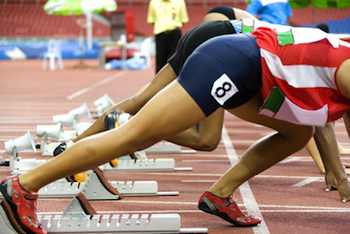- MENU
- HOME
- SEARCH
- WORLD
- MAIN
- AFRICA
- ASIA
- BALKANS
- EUROPE
- LATIN AMERICA
- MIDDLE EAST
- United Kingdom
- United States
- Argentina
- Australia
- Austria
- Benelux
- Brazil
- Canada
- China
- France
- Germany
- Greece
- Hungary
- India
- Indonesia
- Ireland
- Israel
- Italy
- Japan
- Korea
- Mexico
- New Zealand
- Pakistan
- Philippines
- Poland
- Russia
- South Africa
- Spain
- Taiwan
- Turkey
- USA
- BUSINESS
- WEALTH
- STOCKS
- TECH
- HEALTH
- LIFESTYLE
- ENTERTAINMENT
- SPORTS
- RSS
- iHaveNet.com: Health
Harvard Heart Letter

Harvard Health Letters
Sports, and the physical fitness needed to participate in them, provide an extra layer of cardiovascular protection by strengthening the heart, improving the lungs, and making arteries more supple. Sometimes, though, something goes horribly wrong and an athlete suddenly dies while engaged in his or her sport.
In older athletes, sudden death is almost always due to cholesterol-clogged arteries. Among young athletes, more than half of sudden deaths occur because of a cardiac arrest -- the sudden cessation of a normal heartbeat and blood circulation -- due to an inherited condition. Some of these may be identified by a pre-sports medical exam. Exactly what should happen during that exam is a matter of intense debate.
RARE BUT DEVASTATING
Between 200 and 300 young people die each year while playing sports. The causes of these deaths, once seen as mysterious medical catastrophes, are slowly coming to light.
Some of the sudden deaths are caused by injury, heat stroke, asthma, or other causes. More than half of them can be traced to a cardiovascular problem. The most common one is hypertrophic cardiomyopathy, an inherited condition in which the heart muscle becomes disorganized and thick. Individuals born with coronary arteries that are abnormally connected to the heart are also at risk of sudden death. Heart infection or inflammation and a host of less common conditions, such as Marfan syndrome and long QT syndrome, can also spark cardiac arrest during sports.
Although sudden death happens most often in football (30 percent of these deaths), basketball (22 percent), soccer (6 percent), and baseball (6 percent), it also happens to swimmers, lacrosse players, rowers, gymnasts, figure skaters, golfers, and other athletes.
WHAT SHOULD SCREENING ENTAIL?
Although adding an ECG to pre-sports testing could help identify more at-risk athletes, it would cost at least
One way to minimize the price tag and the anxiety is to provide screening programs run by clinicians who routinely work with athletes, such as the clinic that Dr. Aaron L. Baggish and his colleagues in
During the personal history, any of the following should prompt a more thorough evaluation:
1. Chest pain or discomfort with exertion
2. Unexplained fainting or near-fainting, especially when related to exertion
3. Excessive shortness of breath or fatigue associated with exercise
4. A previously diagnosed heart murmur
5. Elevated blood pressure
During the family history, any of the following should prompt a more thorough evaluation:
1. Death before age 50 (sudden and unexpected, or otherwise) in a close relative
2. Disability from heart disease in a close relative under age 50
3. Knowledge of cardiac conditions in family members, such as hypertrophic or dilated cardiomyopathy, long QT syndrome, Marfan syndrome, or clinically important arrhythmias
The physical exam should include these steps:
1. Auscultation (listening to the heart) to identify any heart murmur
2. Checking the femoral pulses in the groin
3. Looking for the physical signs of Marfan syndrome
4. Checking blood pressure at the brachial artery in both arms
WHO NEEDS SCREENING?
Any young person who intends to play a physically demanding sport or do strenuous exercise ought to have a pre-participation check-up that includes the AHA's 12 points. Ideally, it would be done by a physician familiar with sports medicine or athletes.
What if you aren't so young? For competitive athletes older than 35, the AHA recommends that a clinician probe for a personal history of risk factors for coronary artery disease. An exercise stress test and additional cardiovascular testing might be warranted in men over 40 and women over 55 who have two coronary risk factors before they engage in competitive sports or a vigorous training regimen. - Harvard Heart Letter
Available at Amazon.com:
Wellbeing: The Five Essential Elements
Healthy Travel: Don't Travel Without It!
The Good Doctor's Guide to Colds and Flu
Get Stronger, Feel Younger: The Cardio and Diet-Free Plan to Firm Up and Lose Fat
Copyright © Harvard Health Letters
AGING | ALTERNATIVE | AILMENTS | DRUGS | FITNESS | GENETICS | CHILDREN'S | MEN'S | WOMEN'S
Health - Pre-Sports Checkup Can Prevent Sudden Death Among Athletes